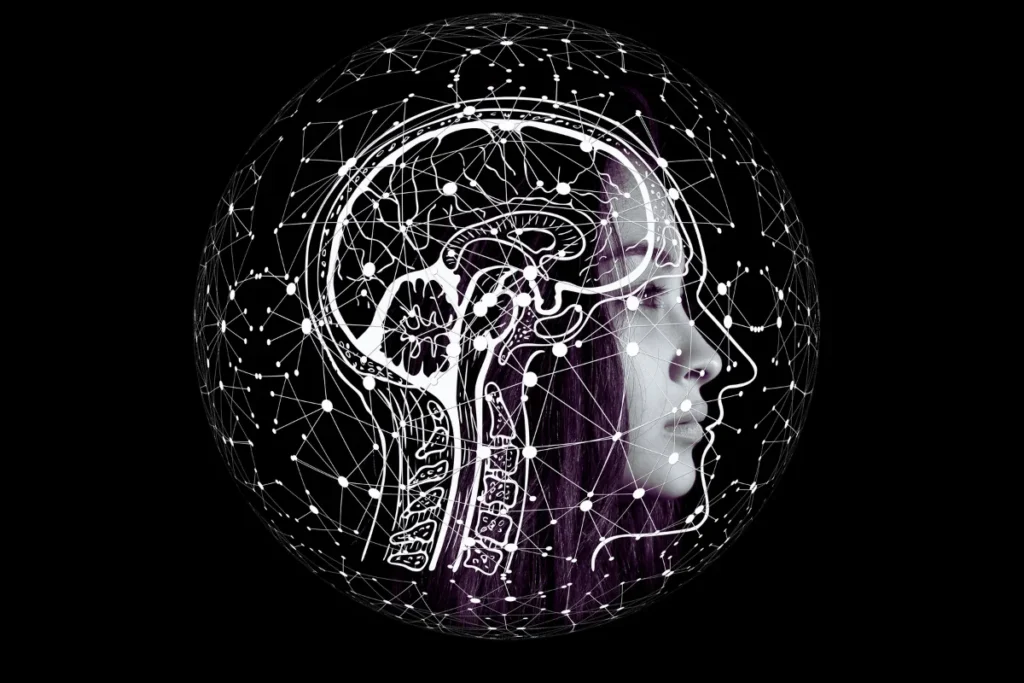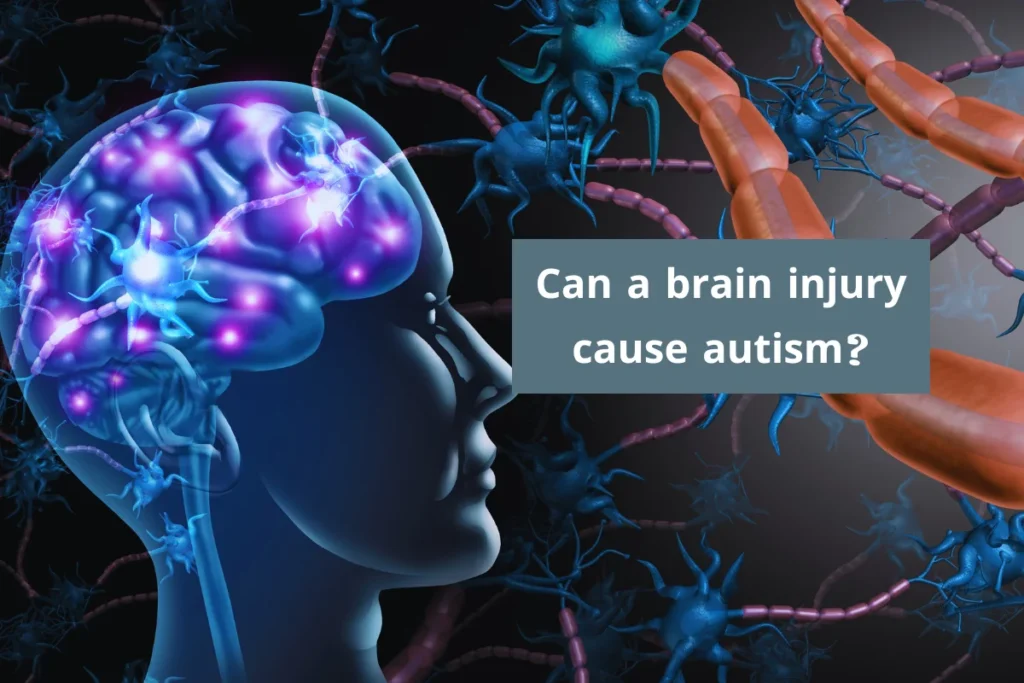Can a brain injury lead to autism? No, a brain injury doesn’t cause autism. Autism is present from birth, while brain injuries result from trauma. They can share symptoms like speech or sensory issues, but their causes and treatments are different. Knowing these differences improves diagnoses and support.
What is Autism Spectrum Disorder?
Autism Spectrum Disorder (ASD) is a condition that affects how individuals communicate, interact, and process the world around them. It is called a “spectrum” because the symptoms and their intensity can vary widely. Autism now includes conditions that were previously considered separate, such as Asperger’s syndrome and pervasive developmental disorder-not otherwise specified (PDD-NOS).
Early Symptoms of Autism
| Category | Symptoms |
| Communication Challenges | Doesn’t respond to their name: May not look or acknowledge when called. Delayed or absent speech: Some may not speak at all, while others have delayed speech or struggle to form sentences. Unusual tone or rhythm in speech: Speech might sound robotic or have an odd pitch. |
| Social Interaction | Avoids eye contact: May not maintain eye contact during conversations or interactions. Prefers to play alone: Does not engage with other people, preferring to play alone. |
| Behavioural Patterns | Repetitive behaviours: Examples include hand-flapping, rocking, or repeating phrases. Self-stimulating behaviours (stimming): Actions like spinning, tapping, or head-banging to cope with sensory overload. |
| Sensory Sensitivities | Heightened sensitivity to sensory input: Dislikes loud noises, bright lights, or certain textures; may feel overwhelmed in noisy environments. |
What is Traumatic Brain Injury (TBI)?

Traumatic Brain Injury (TBI) happens when an external force injures the brain, often due to accidents, falls, or sports injuries. Concussions can be mild or severe, causing long-term impairments.
Symptoms of Traumatic Brain Injury (TBI)
| Category | Symptoms |
| Cognitive Symptoms | 1. Difficulty remembering things, such as forgetting recent events or conversations. 2. Struggling to focus or follow a task, like losing track of what they’re doing midway through an activity. |
| Emotional and Behavioral Changes | 1. Sudden mood swings, such as shifting from calm to irritable without clear reasons. 2. Constant feelings of sadness or depression.Increased frustration or difficulty managing emotions. |
| Physical Symptoms | 1. Frequent headaches or migraines.Dizziness, often described as feeling unsteady or light-headed. 2. Trouble with coordination, such as stumbling while walking or struggling with balance. |
Types of TBI
Some examples of TBIs based on severity:
- Mild TBI (Concussions): Brief loss of consciousness or a feeling of being “dazed.” Symptoms like headaches or fatigue may resolve within days to weeks.
- Moderate TBI: Longer periods of unconsciousness or confusion, with symptoms lasting weeks or months.
- Severe TBI: Extended unconsciousness or coma, often leading to permanent changes in brain function.
Can Autism Be Caused by Head Trauma?
Scientific evidence does not support the idea that brain injuries can cause autism.
ASD is rooted in neurodevelopmental differences present from birth, while TBI results from external trauma occurring later in life.
Overlapping Symptoms of Autism and Brain Injury
Autism and brain injuries can have similar challenges, especially with behaviour and emotions. For example, managing autism-related anger issues often requires calming routines or sensory tools. This overlap can sometimes confuse diagnosis as both conditions may exhibit:
- Communication Difficulties: Both may cause delayed speech or trouble expressing thoughts.
- Behavioural Challenges: Sudden mood swings or difficulty managing emotions are common in both.
- Sensory Issues: Individuals might react strongly to loud noises, bright lights, or certain textures.
Key Differences
- Autism is a developmental condition caused by genetic and environmental factors.
- TBI is caused by physical trauma to the brain, such as an accident or fall.
What Causes Autism?
Autism doesn’t have one clear cause. Research suggests:
- Genetics: A family history of autism increases the likelihood.
- Environment: Exposure to certain medications or infections during pregnancy may play a role.
- Brain Development: Differences in brain structure and function are connected to autism.
How Are Autism and Brain Injuries Diagnosed?
Accurate diagnosis is important to tell autism and brain injuries apart:
- Autism: Diagnosed through behavioural assessments and reviewing developmental history.
- Brain Injuries: Diagnosed using medical scans, neurological tests, and cognitive or physical evaluations.
Support Methods for Autism and Brain Injury
| Support Method | For Autism | For Brain Injury |
| Applied Behavioural Analysis (ABA) | Focuses on improving communication, social skills, and managing repetitive behaviours using reinforcement. | Not typically used for brain injuries, as it targets developmental behaviours specific to autism. |
| Cognitive Rehabilitation | Rarely applied; may help if autism co-occurs with other cognitive issues. | A core method to restore memory, attention, and problem-solving skills through structured exercises. |
| Creating Sensory-Friendly Spaces | Adjust lighting, reduce noise, and introduce sensory tools like fidget toys to help with sensitivities. | Minimise sensory triggers like loud sounds or harsh lighting to reduce irritability and overstimulation during recovery. |
| Managing Emotional Challenges | Calming routines and sensory tools are often effective for addressing autism-related anger issues or emotional outbursts. | Similar strategies can help brain injury recovery by creating a peaceful and supportive environment. |
Different types of residential care homes are available for families seeking structured and professional help.
Conclusion
Autism begins at birth and stems from genetic and developmental factors, while brain injuries are caused by trauma later in life. Despite some shared symptoms, their origins and treatments are not the same.
A clear diagnosis is necessary to address individual needs effectively. For dedicated autism home care in London, contact Metro Care UK today.
FAQs
What are the three main causes of autism?
Autism arises from a combination of 1. genetic factors, 2. environmental influences during pregnancy (such as certain medications or infections), and 3. differences in brain structure or development that occur before birth.
What is the strongest cause of autism?
Genetics is the most significant factor in autism. A family history of autism greatly increases the likelihood of a child being on the spectrum, though environmental factors may also contribute.
Are you born with autism or do you develop it?
Autism is present from birth. While symptoms may not be noticeable until around age two, the condition is rooted in early brain development and not caused by later-life events.
Can a brain scan show autism?
Brain scans can reveal structural or functional differences in individuals with autism, but they are not used for diagnosis. Autism is identified through behavioural assessments and developmental history.
How can you tell the difference between autism and brain injury symptoms?
Autism symptoms are consistent and appear early in life, while brain injury symptoms result from trauma and vary depending on the severity and area of the injury. Consulting a specialist is crucial.

